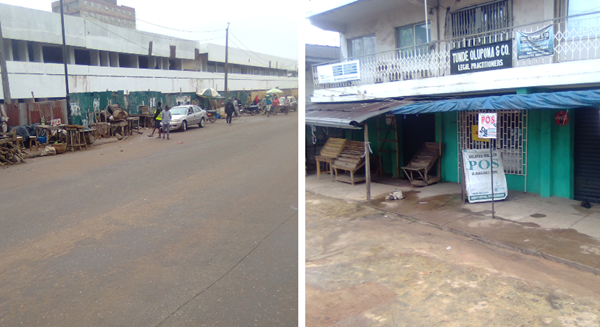
Fear-stricken residents of Enugu, Minna, Ibadan, and other major cities across Nigeria remained indoors on Thursday as the long-awaited #EndBadGovernance protest began, bringing economic activities to a standstill. From Abuja to Abeokuta, Port Harcourt to Lagos, banks and businesses shut down, and the usually bustling streets and major roads were eerily deserted.
In Enugu, the capital of Enugu State, shops, banks, markets, and offices were closed. The typically busy Ogbete Holy Ghost axis was empty, with only a few traders seen at Mayor Market on Agbani Road. The city was largely deserted as residents opted to stay home, fearing a repeat of the sporadic gunfire reported in Owerri, Imo State, the previous day. “With what happened in Owerri, only a person unaware of Igboland’s situation would come out for business,” said resident Chidi Obumneme.
Minna, the capital of Niger State, also experienced a significant slowdown. Streets that usually buzz with activity, such as Kpakungun and Mobile roads, saw little to no traffic. Most shops, filling stations, and markets remained closed, and the presence of heavy security was noticeable, particularly around the Central Bank of Nigeria branch in the city. The popular Kure ultramodern market and Kasuwan Gwari market were completely shut down, reflecting widespread apprehension among traders.
In Ibadan, the Oyo State capital, business and commercial activities were partially paralyzed. The protests made movement difficult, forcing commuters to trek long distances. Many shops, markets, and offices were closed, and the disruption to public transportation left residents struggling to reach work, school, and other essential destinations. Despite the peaceful nature of the protests so far, the economic impact was profound, with the city largely deserted.
Akure, the capital of Ondo State, saw no protests as markets and shops stayed shut. Traders at Oja-Oba were seen playing football on Oba Adesida Road, while heavy security was deployed at strategic locations. The absence of protests was attributed to successful interventions by stakeholders, including Governor Lucky Aiyedatiwa, who engaged student unions, driver unions, and social media influencers to dissuade participation. “We uncovered a plot by miscreants to exploit the protest to cause chaos,” said Ogundipe Seyi, Secretary of the Concerned Revolutionary Youths.
The #EndBadGovernance protests have underscored the deep frustrations among Nigerians over poor governance and living conditions. Despite the varied responses and levels of participation across different states, the message remains clear: citizens are demanding significant improvements in governance and quality of life.








